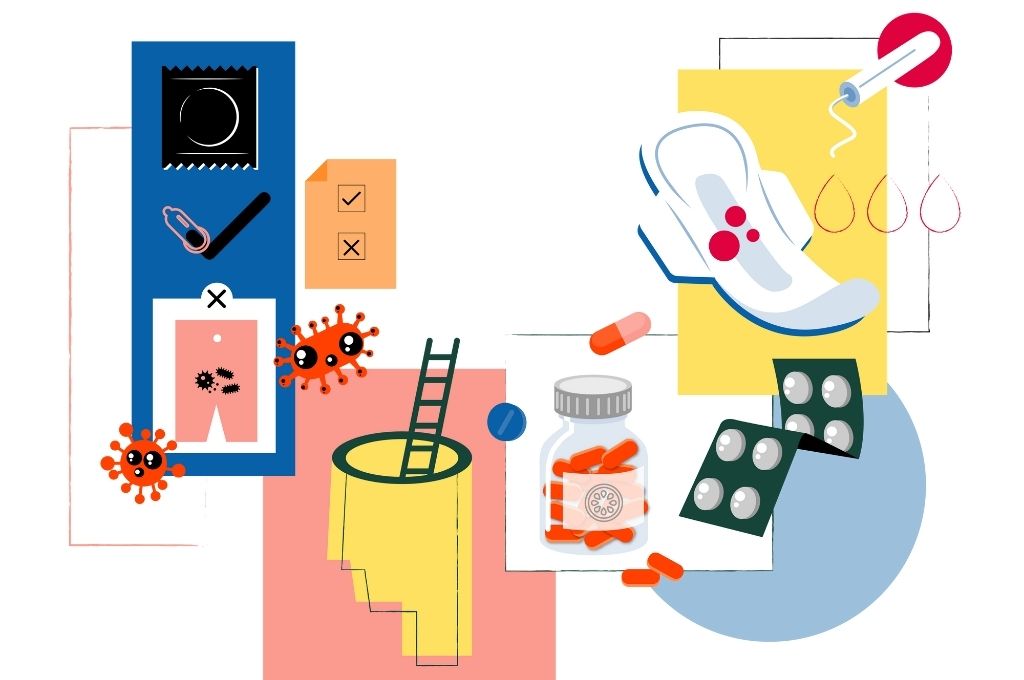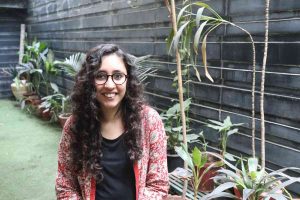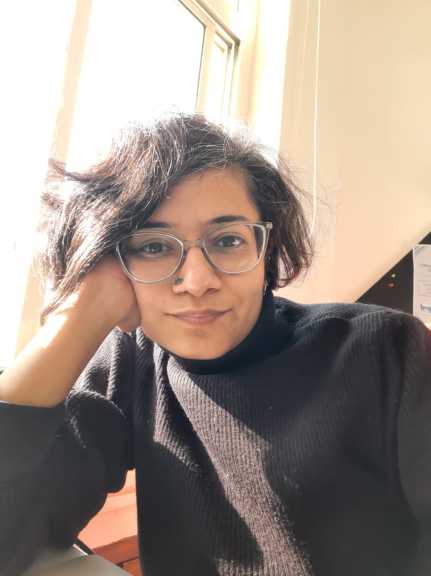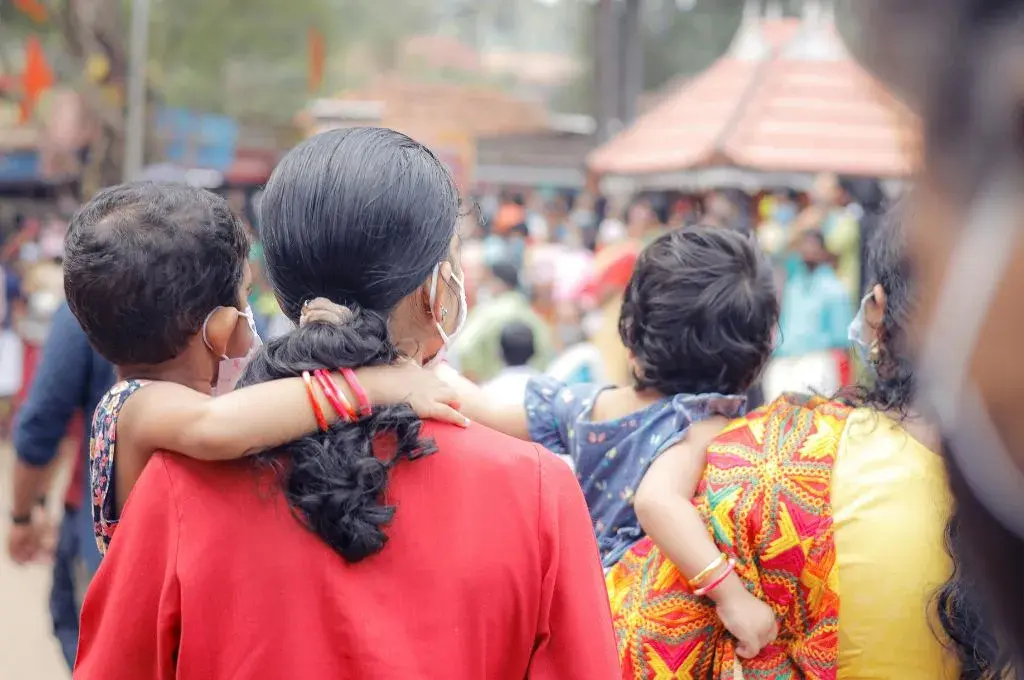In India, sexual and reproductive health (SRH) service seeking behaviours are low. This is especially true for young people, because of the associated stigma. Furthermore, society considers them as ‘minors’ who are inexperienced and lacking the knowledge and skills to make decisions related to their own bodies. They are therefore discouraged from visiting health facilities alone. This is more acute when it comes to women’s access to health services.
The National Family Health Survey (NFHS-4) indicates that only 29 percent of young women between the ages of 15-19 and 40 percent of young women in the age group of 20-24 are allowed to visit health facilities alone. Moreover, only 36 percent of married women without a living child are allowed to visit a health facility alone. NFHS-4 also highlights that 39 percent and 31 percent of currently married women between the ages of 15-19 and 20-24 respectively do not participate in decisions about their own health care.
The above data gives us a glimpse into the multiple overlapping challenges that obstruct young women and other sexual and gender minorities’ access to quality SRH services. Some of these include:
- Attitudinal problems within health care settings that often deny women from making decisions regarding their own sexual and reproductive health. Service providers are often uninformed, judgemental, and disrespectful when it comes pre-marital sex, abortion services, and same-sex relationships and this deters young people, especially women from accessing these services.
- There is also an insistence on consent from the parent or guardian for accessing services at most health care facilities; this discourages unmarried young people from openly discussing their health concerns or accessing services.
- The Prevention of Children from Sexual Offences (POCSO) Act, 2012—that seeks to protect any person below the age of 18 from sexual abuse—poses an additional barrier. The act has a provision on mandatory reporting. This makes access to SRH services for women under 18 difficult because the law views any form of sexual encounter (even if it is consensual) as violence.
For instance, if a 17-year-old unmarried woman engages in consensual sexual activity, becomes pregnant, and wishes to seek an abortion, she will be hard pressed to do so due to POCSO. This is because service providers are mandated to file a medico-legal case and report it to the police under Section 21 of the act, if a young person below 18 seeks SRH services such as abortion or HIV testing. Medico-legal cases result in compromising young people’s right to privacy and confidentiality as the protocols require the police to get involved and inform parents for investigation. Even if the young person is successful in terminating the pregnancy, it would be at the cost of stigma-ridden comments, and her partner being accused of sexual offence. Such provisions act as a deterrent, instil fear, and discourage young people from seeking services. - The Medical Termination of Pregnancy Act of 1971 (MTP) is another youth-unfriendly law. MTP legalises abortion, albeit only under certain circumstances such as foetal anomaly and instances of pregnancy arising out of sexual violence. Seeking safe abortion, then, is contingent on the decision of other medical, legal, and law enforcement professionals instead of the pregnant person themselves. Young and unmarried people seeking abortions are further stripped of their sexual agency and bodily autonomy due to the stigma attached to young people’s sexuality.
- People with disabilities—whose sexualities and desire are often invisibilised, and usually patronised by the system—have it worse. They are automatically assumed to be unfit to make their own decisions. Furthermore, medical providers, frontline health workers, and counsellors are rarely trained and equipped to address the needs of people with disabilities. Claiming bodily autonomy in the context of pregnancy and safe abortion rights, then, becomes even more daunting yet crucial for people with disabilities who are constantly deemed as dependent by society.
The pandemic has made it worse
The pandemic and consequent national lockdown brought unique challenges that only served to exacerbate the above problems of access for young people, especially those from marginalised communities.

With several facilities being transformed overnight into COVID response centres, and the prevalent notion that young people belong to a ‘healthy age group’, their mental and physical health was deprioritised. Further, for many young people, being confined in homes with their families meant that they could not access SRH services or products discreetly, safely, and easily.
The YP Foundation, through its vast network of young people from 25 states and 6 union territories across India, conducted a needs assessment (about 100 people) which highlighted some of these narratives of lack of access and agency. Findings from the study show that:
- The agency of young unmarried women, queer and trans* youth, was specially impeded.
- Young people could not access sanitary napkins. These were kept mostly at schools and anganwadi centres and when they shut down during the lockdown, these were no longer easily available.
- The disruption in supply chains of essential drugs such as ART, HRT, and contraceptives impacted those living with HIV.
- Reduced access to medical facilities meant delays in detecting pregnancies, impeded access to safe abortion services.
- Young people also had difficulty accessing mental health care services.
Recommendations
Maintain privacy and confidentiality
The taboo attached to sexual health services and the fear of social ostracism and exclusion among young people can be tackled if service providers pay attention to auditory and visual privacy protocols during consultation and examination sessions. Doors must be closed and curtains must be drawn to ensure that nobody is overhearing or overseeing. Providers and other facility staff must be trained to maintain confidentiality norms. Identity of clients should not be revealed while sharing medical records for official purposes, or while discussing medical history with colleagues, support staff, or even friends.
Encourage attitudinal change
Service providers should be non-judgmental and sensitive instead of having moralistic and judgmental perspectives on premarital sex and same-sex relationships. They ought to avoid propagating ideas on morality, practicing abstinence, or myths on abortion. Instead, they should focus on enabling young people to make informed decisions. There is a need for service providers to be gender sensitive and ensure respect and equal treatment of all their patients without any biases or discrimination on the basis of social identity including (dis)ability, gender, sexuality, caste, class, religion.
Develop disabled-friendly infrastructure and staff
The health administration should ensure that the infrastructure of the facilities is disabled-friendly. The staff, including medical service providers, counsellors, and support staff should have the skills to communicate with persons with disability.
Create an enabling ecosystem
It is also important that SRH service providers, in their practice, focus on supporting the adolescent/young client in decision making, instead of assuming that parents or guardians will take the best decision for them. Since POCSO is a huge legal barrier, the role of providers becomes more crucial here to protect the sexual autonomy of young people. If the provider gets a client who reports to have had consensual sexual activity before the age of 18 and needs abortion or HIV testing, they could:
- Focus on provision of the required services instead of denying access, as POCSO does not disallow providing any services such as STI testing, safe sex counselling, and abortion services.
- Ask the client to suggest a trusted adult instead of insisting on parental/guardian consent. The medical examination can be undertaken in the presence of any trusted adult as per Section 21 (3). The trusted adult can be the client’s friend, elder sibling, teacher, or relative.
- Support the client by building their own network with human rights lawyers and activists who are trained in providing legal and emotional support in such cases. SRH service providers can help put the client in touch with trained lawyers and activists, be non-judgemental towards the client and remember the principle of ‘doing no harm’ in their practice.
Consider legal change
Lawmakers need to recognise that young people have evolving capacities to consent to sexual relationships. It is therefore important to review the age of consent in this context. While this is a long-term step, the Ministry of Health and Family Welfare must issue interim guidelines to ensure that POCSO does not impede access to STI testing, safe sex counselling, and abortion services for young people under the age of 18.
Rights-based civil society organisations should be consulted to formulate these guidelines. This can go one step ahead in ensuring that the POCSO Act does not take away the sexual autonomy of adolescents and criminalise consenting relationships of adolescents by using the mandatory reporting clause.
Achieving adolescent and youth friendly SRH services and rights is a long journey. This involves simultaneously tackling the stigma and shame associated with adolescent sexuality, as well as challenging institutional practices that disenfranchise young people on the basis of identity. A holistic approach that encompasses best practices related to service provision, destigmatising societal norms on gender and sexuality as well as influencing institutional change at all levels can help improve young people’s access to their rights.
—
Know more
- Learn more through this guide on young people’s sexual rights.
- Read this article to understand the importance of greater access to SRH services in India.
- Understand the impact of COVID-19 on SRH services in low-and middle-income countries.






